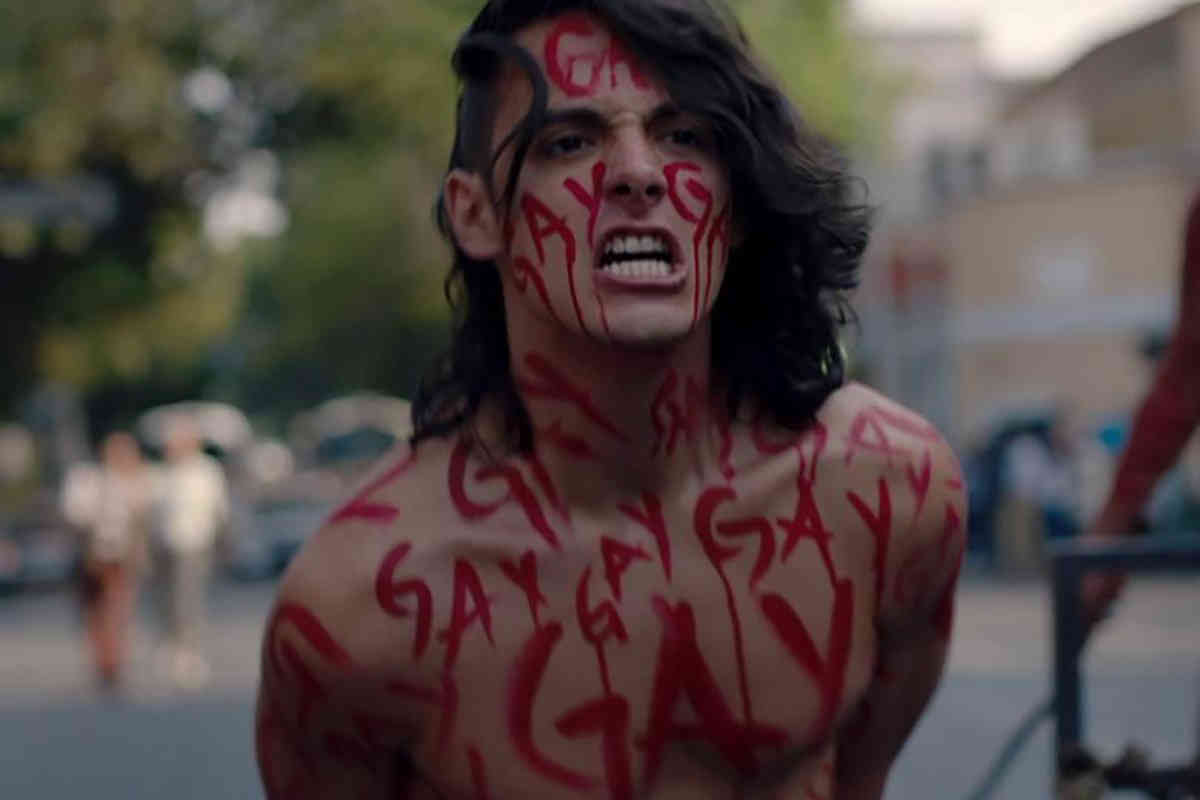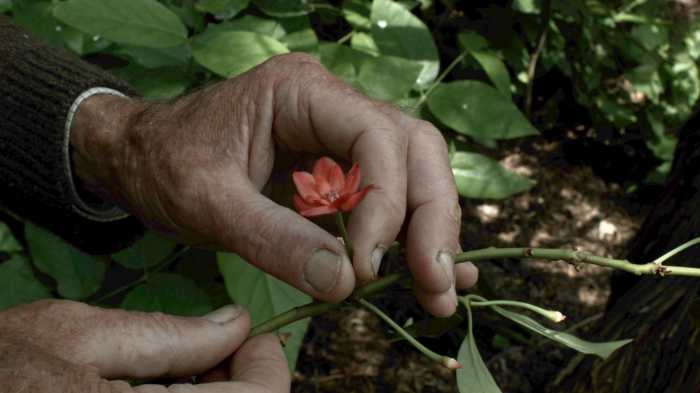“This Is Not Berlin” is a compelling queer coming-of-age drama, set in 1986 Mexico City.
A quasi-autobiographical tale, co-writer/ director Hari Sama’s film depicts the friendship between Carlos (Xabiani Ponce de León) and Gera (José Antonio Toledano), two 17-year-olds who are finding their place in the world. Carlos is into engineering, but feels stifled by the middle-class conformity around him. He is crushed on Gera’s sister, Rita (Ximena Romo), but Rita has a boyfriend, her bandmate Tito (Américo Hollander). Meanwhile, Gera, is renting out his father’s porn magazines to classmates and grappling with his own unspoken attraction.
When Carlos fixes Tito’s synthesizer, he and Gera are allowed to go to the Aztec Club, where Rita sings in a punk band. For the boys, this is like a trip to Wonderland. They become enamored with the underground scene. Gera, spying two men kissing, asks if the Aztec is a gay club. “It’s an everything club,” Rita answers.
The boys feel like they have found a home, and Sama creates a warm, sensual, inviting environment where anything goes, authentically capturing the counterculture scene. As the teens drink in this world of music, clothing, beer, drugs, and attitudes — Carlos is told, “Exclusivity is bullshit” — they, like viewers, are seduced by what they see, hear, feel, and experience.
Carlos meets Nico (Mauro Sanchez Navarro), an artist who takes him up to his studio to show him the nude art works he creates. Nico is obviously smitten with the androgynous Carlos, who seems happy to have his consciousness expanded by inhaling poppers or participating in several of Nico’s naked art projects. Carlos mostly resists Nico’s seductive advances, but the intimacy between the two causes a rift in his friendship with Gera, who becomes jealous.
“This Is Not Berlin” captures a specific time and place, but it will resonate even with audiences who were not part of the ‘80s punk underground scene. The film’s themes about discovering one’s self are universal as Carlos articulates the thought of “wanting something… but something inside you won’t let you do it.” He only achieves a sense of liberation from his teenage angst when he stops worrying about what other people think. In one art performance piece, he walks naked down the street with the word “gay” written in what looks like lipstick all over his body.
Sama’s film, unfortunately, hits on too many of the coming-of-age genre’s clichés. There is the symbolic moment where Carlos shaves one side of his head, indicating a life change. And there are scenes of him having his first joint, losing his virginity (to a woman), and also losing someone important in his life. Characters overdose on drugs and others come out. These moments have significance for the characters and for the story, but at times they feel contrived.
That said, the director deserves credit for the inventive art projects he portrays, such as a film about homophobia projected at a soccer rally or a piece involving two nearly-naked men covered in what appears to be blood. The music is also clever. Rita, who worships Patti Smith, sings a song where she repeats the phrase “sexual promiscuity” ad nauseum.
The film’s title comes from something Gabriel (Emilio Cuaik), an artsy tastemaker, tells Nico: that to succeed in art, his work should stop copying that of Europeans. Gabriel also scolds Nico for partying every night when people are dying, a reference to AIDS that is lost on the young Carlos who witnesses the exchange. In this powerful moment, Gabriel’s wake-up call challenges the artifice of Nico’s world as well Carlos’ privileged, sheltered life.
In the lead role, Xabiani Ponce de León captures just the right tone for Carlos’ evolution from innocence to worldliness, deftly portraying both the gawky adolescent uncomfortable in his own skin and the assured young man secure enough to show off his nakedness. As Gera, José Antonio Toledano is appealing as Carlos’ bestie, his expressions not so subtly revealing his romantic desires. In support, director Sama makes a strong impression in a pivotal role as Carlos’ uncle Esteban.
“This Is Not Berlin” is an affectionate portrait of youth — gay and straight — as they share heady first experiences with sex, drugs, and punk music.
THIS IS NOT BERLIN | Directed by Hari Sama | Samuel Goldwyn Films | Open Aug. 9 IFC Center, 323 Sixth Ave. at W. Third St. | ifccenter.com



































